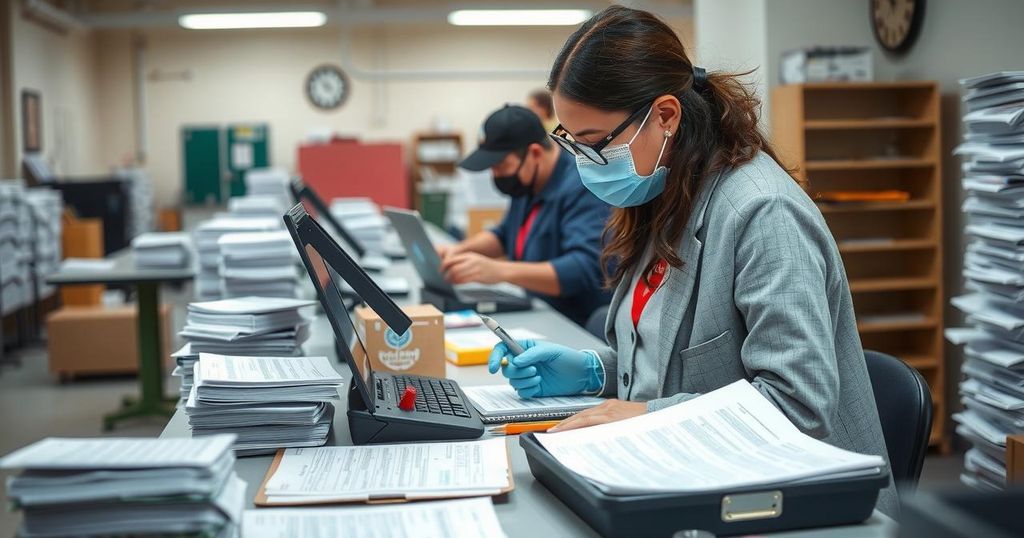Pennsylvania Counties Remove Inactive Voters Amid Claims of Electoral Integrity

Counties in Pennsylvania have recently celebrated the removal of thousands of inactive voters, actions which election skeptics attribute to their advocacy efforts. However, county officials clarify that these removals are part of routine post-election maintenance required by law. Activists claim these processes are inadequate, prompting strategies to encourage voters to confirm their registration status, which has led to confusion among recipients.
In Pennsylvania, counties have recently undertaken the removal of thousands of inactive voters from their rolls, a process celebrated by election skeptics. However, county election officials clarify that these removals stem from routine post-election procedures mandated by both state and federal laws. Activists from PA Fair Elections have linked their efforts to this surge in removals despite the fact that these actions are carried out as part of standard electoral maintenance required after federal elections, aiming to keep voter rolls accurate.
Deborah Austin, an engaged local activist, reported an impressive figure of 11,878 out-of-state registrants removed, relayed through an email from the Election Research Institute. Despite the excitement from advocacy groups, Delaware County’s elections director, Jim Allen, emphasized that these removals do not reflect the influence of any outside organization. He stated, “I’m glad they consider us restoring their confidence, but at the same time, we never did anything to take away from their confidence.”
This maintenance of voter rolls is not only a legal requirement but also a crucial aspect of ensuring voter integrity. Federal statutes allow the removal of voters who have been inactive for two successive federal election cycles. While groups like PA Fair Elections argue for a more expedited process, the current regulations stipulate a minimum four-year window for a voter to be declared inactive, potentially extending to nine years under certain circumstances.
Prior to the upcoming November election, Austin proactively contacted voters with letters encouraging them to confirm their registration status and seek removal if applicable. Her approach, which included providing pre-stamped envelopes for voters to respond, led to some confusion among those receiving these letters, prompting a wave of inquiries to county election offices.
In summary, while advocacy groups may perceive their actions as pivotal in influencing voter roll clean-ups, established election protocols are the primary driver of these changes. As Pennsylvania gears up for its November elections, maintaining accurate voter rolls remains a vital yet complex task, with ongoing debates surrounding the integrity and accessibility of electoral processes.
The article addresses the cleaning of voter rolls in Pennsylvania following a wave of recent removals celebrated by election skeptics. While these activists have worked to promote voter roll maintenance, county officials clarify that such actions are routine post-election procedures mandated by law. This discussion unfolds against a backdrop of heightened scrutiny surrounding electoral integrity, following contentious claims regarding the accuracy of the 2020 presidential election results. The dialogue encapsulates tensions between electoral officials and activists advocating for stricter voter registration and removal practices.
In conclusion, the recent activity surrounding the cleaning of Pennsylvania’s voter rolls highlights the delicate balance between ensuring electoral integrity and addressing claims made by activist groups. While the cleaning of these rolls is essential for upholding the accuracy of elections, it is vital to distinguish routine procedures from the influence of external scrutiny. As the state prepares for the upcoming election, maintaining a clear understanding of these processes remains paramount to fostering public confidence in electoral systems.
Original Source: www.witf.org







